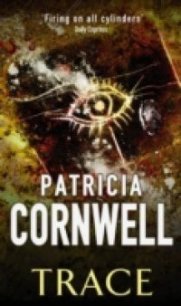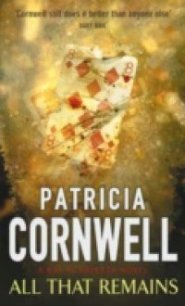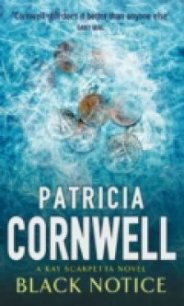The Last Precinct - Cornwell Patricia (читаем книги онлайн TXT) 📗
Chapter 3
I WAKE UP THE FOLLOWING MORNING TO VOICES IN the house and have the unsettling sensation that the telephone rang all night. I am not sure if I dreamed it. For an awful moment I have no idea where I am, then it comes to me in a sick, fearful wave. I work my way up against pillows and am still for a moment. I can tell through drawn curtains that the sun is aloof again, offering nothing but gray.
I help myself to a thick terry-cloth robe hanging on the back of the bathroom door and put on a pair of socks before venturing out to see who else is in the house. I hope the visitor is Lucy, and it is. She and Anna are in the kitchen. Small snowflakes sprinkle down past expansive windows overlooking the backyard and the flat pewter river. Bare trees etched darkly against the day move slightly in the wind, and wood smoke rises from the house of the nearest neighbor. Lucy has on a faded warm-up suit left over from when she took computer and robotics courses at MIT. It appears she has styled her short auburn hair with her fingers, and she seems unusually grim and has a glassy-eyed, bloodshot look that I associate with too much booze the night before,
"Did you just get here?" I hug her good morning. "Actually, last night," she replies, squeezing me tight. "I couldn't resist. Thought I'd drop by and we'd have a slumber party. But you were down for the count. It's my fault for getting here so late."
"Oh no." I go hollow inside. "You should have gotten me up. Why didn't you?"
"No way. How's the arm?"
"It doesn't hurt as much." This is not at all true. "You checked out of the Jefferson?"
"Nope, still there." Lucy's expression is unreadable. She drops to the floor and pulls off her warm-up pants, revealing bright spandex running tights underneath.
"I am afraid your niece was a bad influence," Anna says. "She brought over a very nice bottle of Veuve Cliquot and we stayed up much too late. I would not let her drive back downtown."
I feel a twinge of hurt, or maybe it is jealousy. "Champagne? Are we celebrating something?" I inquire.
Anna replies with a slight shrug. She is preoccupied. I sense she carries very heavy thoughts that she does not want to set down before me, and I wonder if the phone really did ring last night. Lucy unzips her jacket, revealing more bright blue and black nylon that fits her strong, athletic body like paint.
"Yeah. Celebrating," Lucy says, bitterness lacing her voice. "ATF's put me on admin leave."
I can't believe I heard her right. Administrative leave is the same thing as being suspended. It is the first step in being fired. I glance at Anna for any sign that she already knows about this, but she seems just as surprised as I am.
"They've put me on the beach." ATF slang for suspension. "I'll get a letter in the next week or so that will cite all my transgressions." Lucy acts blase but I know her too well to be fooled. Anger is about all I have seen boiling out of her over recent months and years, and it is there now, molten beneath her many complex layers. "They'll give me all the reasons I should be terminated and I get to appeal. Unless I decide to just fuck it and quit. Which I might. I don't need them."
"Why? What on earth happened? Not because of him." I mean Chandonne.
With rare exception, when an agent has been in a shooting or some other critical incident, the routine is to immediately involve him in peer support and reassign him to a less stressful job, such as arson investigation instead of the dangerous undercover work Lucy was doing in Miami. If the individual is emotionally unable to cope, he might even be granted traumatic leave time. But administrative leave is another matter. It is punishment, plain and simple.
Lucy looks up at me from her seat on the floor, legs straight out, hands planted behind her back. "It's the old damned if you do, damned if you don't," she retorts. "If I'd shot him, I'd have hell to pay. I didn't shoot him and I have hell to pay."
"You were in a shoot-out in Miami, then very soon after you come to Richmond and almost shot someone else." Anna states the truth. It doesn't matter if the someone else is a serial killer who broke into my house. Lucy has a history of resorting to force that predates even the incident in Miami. Her troubled past presses down heavily in Anna's kitchen like a low-pressure front.
"I'm the first to admit it," Lucy replies. "All of us wanted to blow him away. You don't think Marino did?" She meets my eyes. "You don't think every cop, every agent who showed up at your house didn't want to pull the trigger? They think I'm some kind of soldier of fortune, some psycho who gets off on killing people. At least, that's what they're hinting at."
"You do need time off," Anna says bluntly. "Maybe it is about that and nothing more."
"That's not what this is about. Come on, if one of the guys had done what I did in Miami, he'd be a hero. If one of the guys almost killed Chandonne, the suits in D.C. would be applauding his restraint, not nailing him for almost doing something. How can you punish someone for almost doing something? In fact, how can you even prove someone almost did something?"
"Well, they'll have to prove it," the lawyer, the investigator in me tells her. At the same time I am reminded that Chandonne almost did something to me. He didn't actually do it, no matter his intention, and his eventual legal defense will make a big issue of this fact.
"They can do whatever they want," Lucy replies, as hurt and outrage swell. "They can fire me. Or bring me back in and park my butt at a desk in some little windowless room somewhere in South Dakota or Alaska. Or bury me in some chicken-shit department like audio-visual."
"Kay, you haven't had coffee yet." Anna attempts to dispel the mounting tension.
"So maybe that's my problem. Maybe that's why nothing's making any sense this morning." I head to the drip machine near the sink. "Anybody else?"
There are no other takers. I pour a cup as Lucy leans into deep stretches, and it is always amazing to watch her move, liquid and supple, her muscles calling attention to themselves without deliberation or fanfare. Having started life pudgy and slow, she has spent years engineering herself into a machine that will respond the way she demands, very much like the helicopters she flies. Maybe it is her Brazilian blood that adds the dark fire to her beauty, but Lucy is electrifying. People fix their eyes on her wherever she goes, and her reaction is a shrug, at most.
"I don't know how you can go out and run in weather like this," Anna says to her.
"I like pain." Lucy snaps on her butt pack, a pistol inside it.
"We need to talk more about this, figure out what you're going to do." Caffeine defibrillates my slow heart and jolts me back into a clear head.
"After I run, I'm going to work out in the gym," Lucy tells us. "I'll be gone for a while."
"Pain and more pain," Anna muses.
All I can think of when I look at my niece is how extraordinary she is and how much unfairness life has dealt her. She never knew her biological father, and then Benton came along and was the father she never had, and she lost him, too. Her mother is a self-centered woman who is too competitive with Lucy to love her, if my sister, Dorothy, is capable of loving anyone, and I really don't believe she is. Lucy is possibly the most intelligent, intricate person I know. It has not earned her many fans. She has always been irrepressible and as I watch her spring out of the kitchen like an Olympic runner, armed and dangerous, I am reminded of when she began the first grade at age four and a half and flunked conduct.
"How do you flunk conduct?" I asked Dorothy when she called me in a rage to complain about the horrible hardship of being Lucy's mother.



